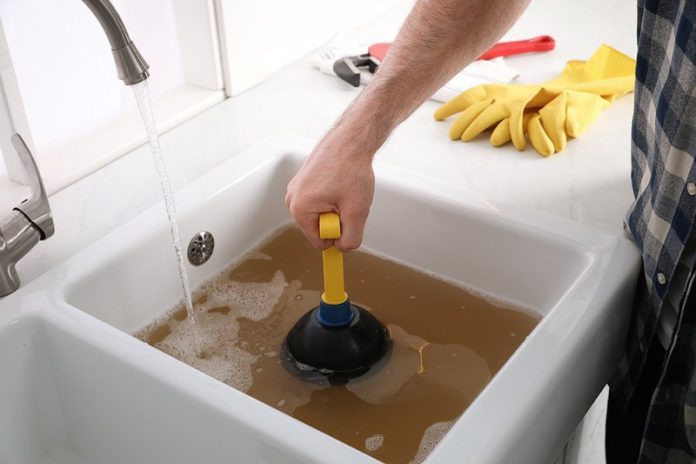When you get an inkling that something might be wrong with your sewer system, you might find yourself at a loss, with no idea how to address this issue. However, there’s no need to panic.
You can take several concrete steps after realizing that a backed-up sewer could be affecting your home’s plumbing. Before calling a professional for help, you should perform these tasks in preparation for the necessary repair work. They will help you minimize damage to your home while ensuring the safety of everyone in your household.
1. Determine Whether You Have a Backed Up Sewer
Determining whether you have a clogged drain in your home or are experiencing a backed-up sewer can be challenging. To tell the difference, look for problems in the drains throughout your home. A backup in one sink or toilet is probably due to a clogged drain.
The signs of a sewer backup are more widespread. You’ll experience backed-up drains in multiple sinks. Your bathtub will probably fill with sewer water. You might also find that your toilet won’t flush and gurgles when unused. Watch for your toilet to fill up to a higher level when you use your bathroom sink.
2. Turn Off the Water Supply
Once you determine that a sewer backup is the most likely problem, there are a few necessary steps. When dealing with the sewer backup, the first thing is to turn off the water supply at the main valve, which might be located in your basement or outside your home.
There are a few reasons why you should immediately turn off the water. First, leaving the valve open will lead to more water waste, costing you heavily when your next utility bill arrives. Second, that consistent flow of water will cause flooding in your home. Keep an eye on your kitchen, bathroom, and basement since these areas will likely flood.
3. Limit Access to Flooded Areas
The combination of flooded floors and exposed electrical outlets and fixtures increases the electrocution risks. For this reason, limit access to high-risk areas. If you have children or pets, ensure they can’t get to the flooded areas in your home. You should avoid entering these areas yourself except when absolutely necessary.
As a safety precaution, turning off the power to your home’s electrical panel is also a good idea. You probably won’t be able to stay in a flooded home, so this shouldn’t be inconvenient.
4. Avoid Using Your Home’s Drains
As soon as you notice that you’re experiencing a backed-up sewer, make sure everyone in your home knows not to use the drains, including those in bathtubs, showers, and sinks. Rinsing water, using garbage disposal, or flushing any waste will contribute to the sewer problem.
Contributing to a clog in your sewer will make the repair work harder. It might also cause more damage, raising the complexity, time, and costs of fixing the sewer issue. Keep buckets on hand to dispose of wastewater, and make sure everyone knows to use trash receptacles for solid garbage and waste.
Don’t rely on using a neighbor’s shower or toilet. Depending on where the sewer back-up started, their plumbing systems may have been similarly affected.
5. Remove Standing Water and Ventilate Your Home
Finally, make sure to remove any standing water in your home. Wear boots with rubber soles and gloves to insulate against any remaining electrical charges, and use buckets to remove standing water.
It’s also a good idea to keep the windows open in the flooded parts of your home. Doing so will speed up drying time and reduce the risks of mold growth in your home. In addition, remember to remove any furnishings that suffered water damage. You can place them outdoors to dry and plan to dispose of heavily damaged items. This will help you eliminate other potential sources of mold growth.
It’s Time to Call for Help
After taking these steps, you’ll be ready for the professional repair work companies like SERVPRO provide. Depending on the type of water contamination resulting from the backup, you may need various clean-up and restoration services. A company qualified to clean up biohazards will help you restore your sewer and plumbing services.















